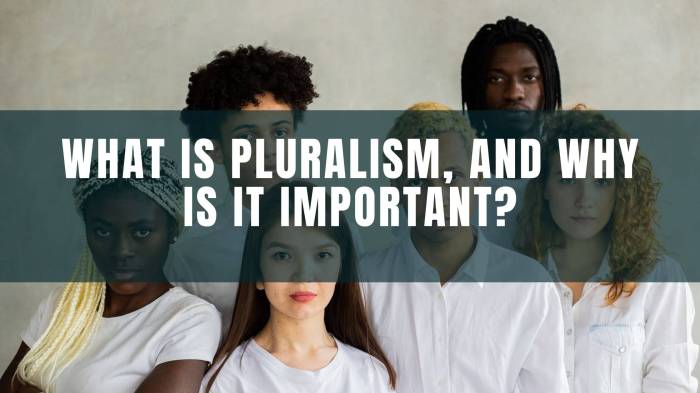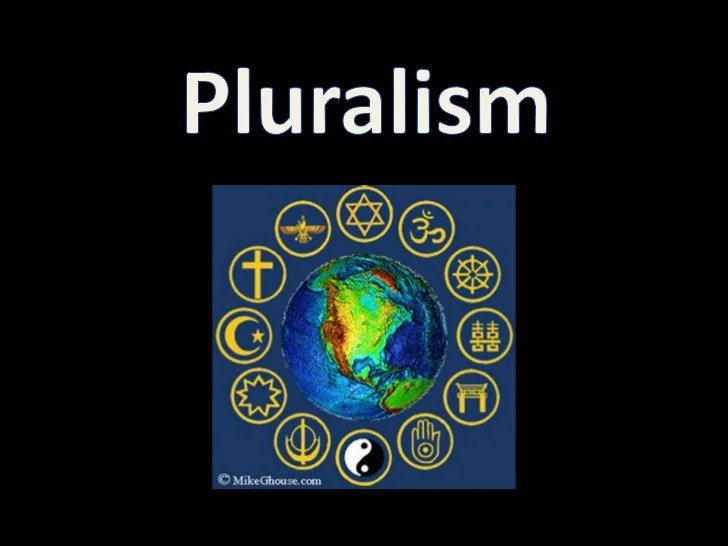A flaw in pluralism theory is the fact that it overlooks power imbalances. This can lead to a distorted representation of interests, as powerful groups may be able to exert undue influence over the decision-making process. Furthermore, power dynamics can hinder the effectiveness of pluralism, as they can make it difficult to achieve consensus or take collective action.
Pluralism theory is a political theory that emphasizes the importance of diversity and the role of multiple groups in society. It assumes that power is distributed among a variety of groups, and that these groups can compete with each other to influence policy.
However, critics argue that pluralism theory fails to take into account the fact that power is not always evenly distributed, and that some groups may be able to dominate others.
Definition and Overview of Pluralism Theory

Pluralism theory is a political theory that emphasizes the role of multiple, competing interest groups in the political process. It suggests that power is dispersed among various groups, each representing different interests, and that these groups interact and negotiate to influence policy outcomes.
The origins of pluralism theory can be traced back to the writings of political thinkers such as Aristotle and James Madison. In the 20th century, it was further developed by scholars like David Truman and Robert Dahl. Pluralism theory has been applied to explain political processes in various countries, including the United States, the United Kingdom, and Canada.
Flaw in Pluralism Theory: Lack of Focus on Power Dynamics
One criticism of pluralism theory is that it overlooks the role of power dynamics in the political process. Critics argue that pluralism assumes that all interest groups have equal access to power and influence, which is not always the case in reality.
Power imbalances can lead to the underrepresentation of certain interests, particularly those of marginalized groups.
For example, in a political system where economic elites have disproportionate influence, their interests may be prioritized over those of the working class. This can result in policies that benefit the wealthy at the expense of the poor.
Flaw in Pluralism Theory: Difficulty in Reconciling Conflicting Interests
Another flaw in pluralism theory is the challenge of balancing diverse interests within a pluralistic system. While pluralism recognizes the existence of multiple interests, it can be difficult to reconcile these interests and reach consensus on policy decisions.
In a pluralistic society, individuals and groups may have conflicting goals and priorities. The pursuit of individual interests can sometimes lead to collective inaction or gridlock. For example, in a political system where multiple parties represent different ideological perspectives, it can be difficult to form stable governments and pass legislation.
Flaw in Pluralism Theory: Limited Applicability in Non-Democratic Societies
Pluralism theory is often criticized for its limited applicability in non-democratic societies. Critics argue that pluralism requires certain preconditions, such as freedom of association, political participation, and a rule of law, which may not exist in authoritarian or totalitarian regimes.
In non-democratic societies, power is typically concentrated in the hands of a single party or a small elite. This can hinder the development of independent interest groups and prevent the effective representation of diverse interests.
Flaw in Pluralism Theory: Potential for Group Dominance, A flaw in pluralism theory is the fact that
Another concern about pluralism theory is the potential for group dominance. Critics argue that pluralism can lead to the domination of certain groups, particularly those with greater resources and influence. This can result in the suppression of minority voices and the erosion of democratic values.
For example, in a political system where a single interest group has a monopoly on power, it may use its influence to advance its own interests at the expense of others. This can lead to policies that benefit a narrow segment of society while neglecting the needs of the majority.
User Queries: A Flaw In Pluralism Theory Is The Fact That
What is pluralism theory?
Pluralism theory is a political theory that emphasizes the importance of diversity and the role of multiple groups in society.
What is a flaw in pluralism theory?
A flaw in pluralism theory is the fact that it overlooks power imbalances. This can lead to a distorted representation of interests, as powerful groups may be able to exert undue influence over the decision-making process.
How can power dynamics hinder the effectiveness of pluralism?
Power dynamics can hinder the effectiveness of pluralism by making it difficult to achieve consensus or take collective action.


